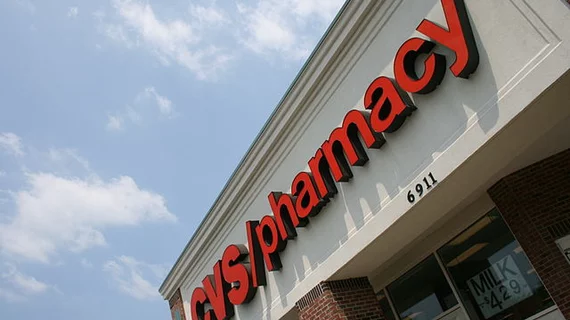CVS Health is in the “home stretch” of the regulatory process with the Justice Department and state regulators for its $69 billion merger with Aetna, according to CEO Larry Merlo, who spoke with Bloomberg Thursday.
Reports have surfaced that CVS may need to divest some assets with respect to its standalone Medicare Part D prescription drug plan for regulators to OK the merger. That process could potentially slow approvals from regulators, according to reports, which came on the heels of another mega-deal receiving a green light from the Department of Justice. Cigna’s $67 billion takeover of pharmacy benefit manager (PBM) Express Scripts was cleared by the DOJ on Sept. 17.
“This is a highly complementary transaction, [a] vertical merger,” Merlo told Bloomberg. “Our only area of commonality is the Medicare prescription drug business. We comprehended a range of options if any divestiture is required. And we’re quite comfortable that the merits of this transaction will move forward pending the Justice decision."
The company, which is one of the nation’s largest PBMs, anticipates the transaction will conclude early in the fourth quarter this year, Merlo said.
New care model
The deal is a major signifier of increasing consolidation across the healthcare space, bringing together a large health insurance provider with a health services, pharmacy and retail company. The combination of the two companies could also lead to a new model of community-based care with lower costs, Merlo said.
CVS currently operates roughly 1,100 walk-in medical clinics and 9,800 retail locations. Its PBM business serves approximately 94 million members, while the senior pharmacy care business serves more than 1 million patients annually.
“We see a new [care] model that is local, out in the communities where people live,” Merlo explained on Bloomberg TV. “Our healthcare system has become way too complicated, and we can create a model that is easier to use and navigate. The North Star [here] is helping people achieve their best health at a lower cost.”
The crux of the model is to serve individuals with chronic conditions such as hypertension, diabetes, asthma and high cholesterol, Merlo said. CVS locations have the ability to make many more touch points with patients compared to physicians, who may only see patients with chronic conditions three or four times per year.
“We see these people in our pharmacies countless times in a year and can complement [the physician visits],” he said.
Ideally, CVS’s services could support patients at home and in their communities and prevent more adverse—and costly—health events, such as an emergency room visit.
The model is reflective of broader shifts happening across the healthcare space toward value-based care.
Skilled nursing facilities—one of the most costly healthcare settings—have seen their occupancy levels drop considerably over the last few years, hitting a record low during the second quarter of 2018, according to the National Investment Center for Seniors Housing & Care (NIC).
Meanwhile, other major insurers and healthcare services companies, such as Humana, are ramping up their at-home care capabilities, a less expensive form of care than can treat chronic conditions.
Innovative competitors
While also making moves to better align with the shifting industry, traditional players in the space have their eye on outside innovators, such as Amazon. The e-commerce giant has partnered up with Berkshire Hathaway and JPMorgan Chase to form a new entity to address the healthcare needs of their combined 1.1 million employees. Amazon also recently acquired online pharmacy company PillPack for an estimated $1 billion.
While Amazon continues to dip its toes into the healthcare space, it has yet to enter the field as a face-to-face healthcare provider.
“We have tremendous respect for our competitors, and Amazon is a respected and formidable competitor,” Merlo said. “When I wake up every day, I’m not focused on Amazon. I’m focused on what more we can do to improve the services for our clients and millions of customers and patients we serve every day.”
Merlo further believes that innovation is in the DNA of CVS and that the company can disrupt the healthcare industry from within through its community-based approach. He pointed to CVS’s mail order, delivery, retail stores and drive-through pharmacy options as solutions on par with Amazon.

